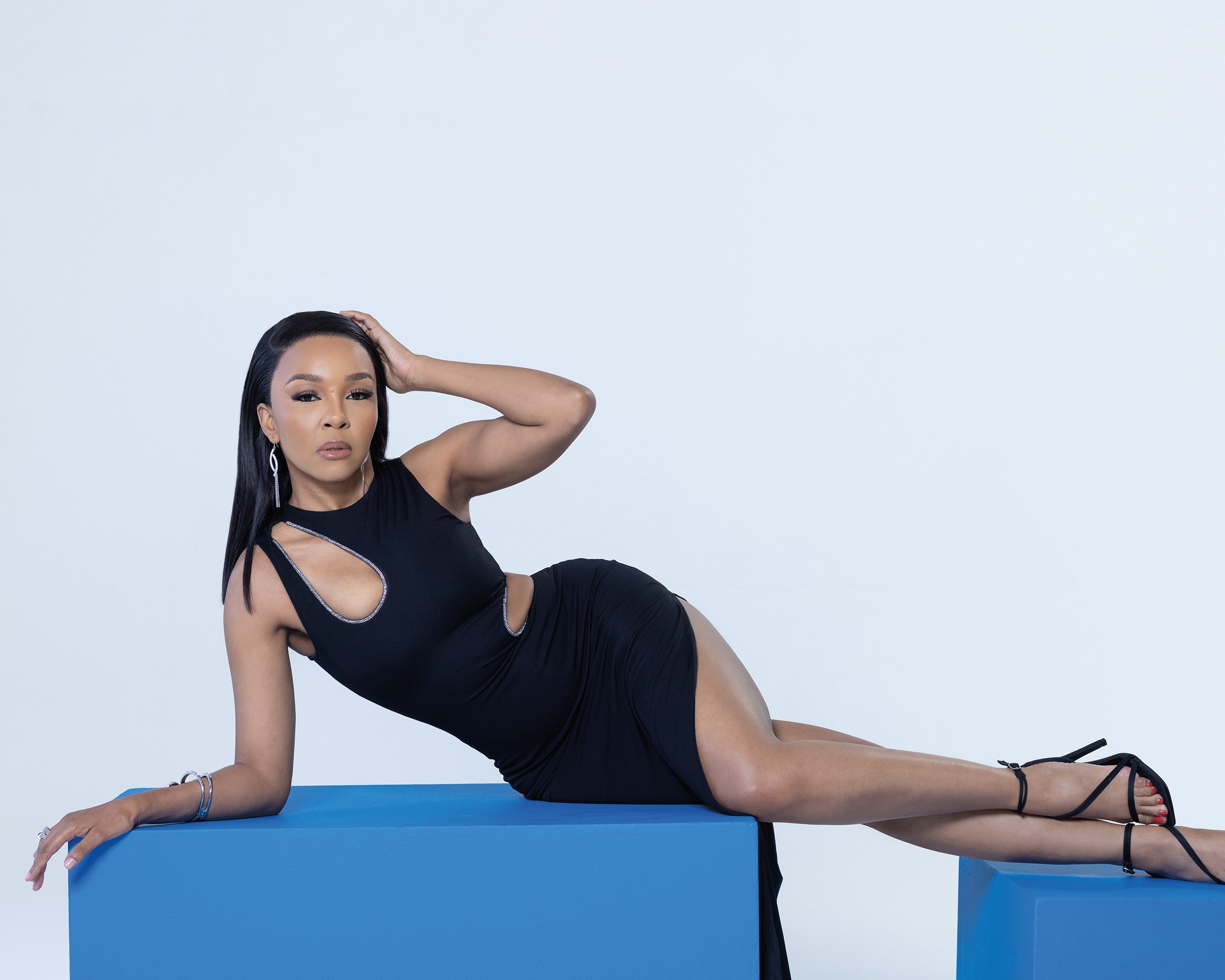Award-winning singer and actress is living proof of the power of “dancing through the pain”.
Cici was not a chatty child, but she felt she had plenty to say. Luckily, she learnt early on that expression came much more naturally when she had a backing track. “My parents were both pastors, so I grew up singing. My love for performing music was nurtured in the church and school choirs”.
She was also drawn to the heartfelt storytelling of country music and Dolly Parton was an early idol. But her biggest musical influence was her late older brother, Sbongiseni Robert Thwala. “He used to play me his music, like Mariah Carey and Bon Jovi, and exposed me to different genres. He would perform at local events and try to be like Usher. The crowd would go crazy, and I always thought: ‘I want that!’”.
Cici started writing songs by tweaking the lyrics or tempo of tracks she already liked. When she began weaving in her own stories and feelings into it, that’s when she discovered the gift of storytelling through music. Now, creating songs with meaning is her main objective.
“I always found that music was the one thing that either made me feel be er or was able to help me to express myself and what I was feeling in that moment. Sometimes there are things you don’t know how to say, but music can express how it feels. It can resonate with people, and they apply the message to their own life”.

At 16, Cici had already made it to the Top 32 in the singing competition Idols and the second round of an Afrikaans singing competition. “Those competitions were exciting, but also scary, because looking back – I wasn’t ready. But they prepared me for what was to come”.
After school, she studied towards a Bachelor of Dramatic Arts at the University of the Witwatersrand. Because of financial pressure, she had to leave her studies at the beginning of the third year and took up a job as a promoter and then a desk job. “I used to put on my headphones and sing along when I was working at reception, and the boss would call me upstairs and tell me ‘This is not Idols’. It’s around that time that I started to focus on cabarets after hours. After I got my first cabaret pay check, I realised it was way better than singing in an office. I was out of there,” she recalls with a chuckle.
And so began years of performing in cabarets on cruise ships, which not only allowed her to see the world but also hone her skills as a performer and ‘showman’. “When my first song became a hit, I was ready because I’d been practising and preparing for that moment all along”.
Her big break came in 2016 with the release of Runaway, which went on to win a host of awards. “I wasn’t sure about the song, and others also weren’t, because an original R&B song had never really worked for a South African artist before. But I saw that as an opportunity: if I managed to do it, I would be the first. And it’s still my biggest song.” Two award-winning albums have followed, along with a blossoming acting career in leading South African series Generations and Rhythm City.
Cici’s soundtrack
“My albums are the audiobooks of my life. If you want to know where I’m at in life, all you’ve got to do is listen to my music,” shares Busisiwe Thwala, or Cici, with just a hint of a smile. And if you tune into her latest hit, ‘Thula’ with Dj Zinhle, you’ll hear that she’s “dancing on broken glass”, having made it through several years of personal trials and triumphs.
‘Thula’ is the latest on a long and star-studded list of collaborations for Cici. “I’ve heard that people at the top don’t compete, they collaborate,” she says. “I enjoy collaborating because I get to see other artists’ creative process. It also pushes me to expand my sound.
That was what happened with ‘Hamba Juba’ (with Lady Amar, Murumba Pitch and JL SA); I am seen as an Afro Pop artist and was worried that people would think I was just jumping on a trend if I sang on an Amapiano track… but they went crazy for it and now I do more Amapiano music.”
Cici’s music may be meaningful, but it’s also designed to get fans on their feet. “That’s where my people are – they’re on the dancefloor, and I want to meet them there,” she says. “To me, that kind of reception means so much more than the awards. It means it moves people, and that’s what’s important to me.”
The artist sings about love and joy now, but for a time her songs were an expression of something much more painful. She left a relationship with the boss of record label 999 Music, Arthur Mafokate, in 2017 after suffering abuse. In court, she testified that he had allegedly dragged her down the street, which resulted in a pelvic replacement procedure. He was acquitted in 2019.
“People looking in from the outside say, ‘Just walk away’, but it’s never that easy,” reflects Cici. “But you have to make that choice to leave and protect your sense of self. I want women in a similar situation to know that there is no need to fear ‘starting over’. For me, I had to let go of that fear and understand that if I leave, I take my talent with me and what I do with it is up to me.”

Society often makes leaving a marriage seem shameful, she muses: “There’s a saying in Zulu that you have to be ‘relentless in marriage’. But at what cost? You cannot lose a part of who you are, your sense of self, trying to prove to the world that your marriage can work, or is working, or can be fixed. There are just certain things that can’t be fixed.”
Making music and writing lyrics was Cici’s therapy, and her songs served as messages of hope – not just for others, but also for herself. By 2019, the artist’s career was soaring when she married her ‘person’ – her husband, whose identity she hasn’t revealed. A year later, she gave birth to their son, Diallo.
“I call Diallo my ‘prayer answered’, because I really thought I’d never be a mom [after the pelvic injury]. I come from a big family so having my own child was a dream of mine. I’m not a person with a lot of friends, so I’m glad God gave me the opportunity to create one for myself. He’s my best friend and has taught me about unconditional love, quality time and to appreciate the little things in life”.
Cici is “in a really good space right now” – so much so that she’s using other people’s experiences as inspiration for her lyrics. She’s in the process of moving from her current record label, Ambitiouz Entertainment, to a more independent way of making her music.
“I think I’m at the point in my career where I know my brand and I can do the things I want. I’ve been with my ex-label for years and they really helped me grow – for example, they encouraged me to sing in Zulu and it really worked well. It’s been great, but I want to spread my wings and grow. Nobody knows me better than me.”

Cici in a flash
Dream collaborator?
I’ve always been a fan of Rihanna: she’s edgy, cool and real.
Role model?
I know this is cheesy, but my mom. She raised eight children and made it look effortless. She’s God fearing and relentless.
Ideal Sunday?
A braai with my family. I have a bunch of funny and crazy family members. I’ve never been big on friends: my parents always said ‘your family are your friends’.
Song on repeat?
Either my song ‘Thul’a or ‘You’re So You’ by Loyiso.
Best comfort meal?
Hot wings!
Words by: Christi Nortier
Photographer: Zhann Solomons







